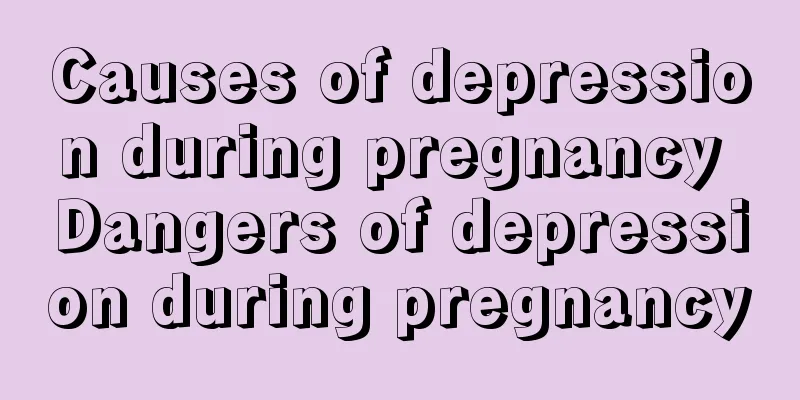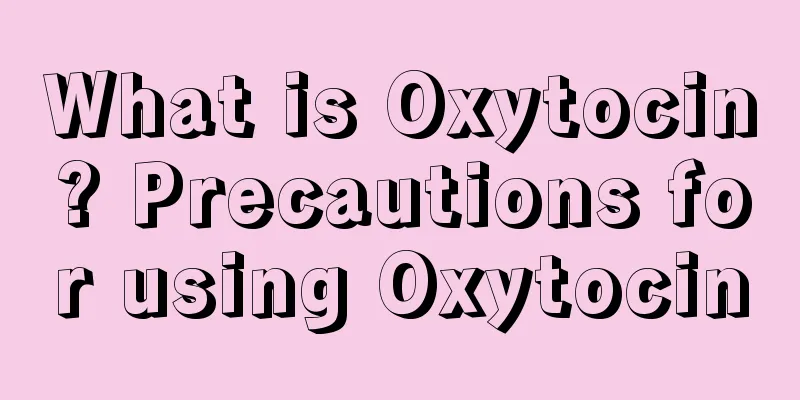Causes of depression during pregnancy Dangers of depression during pregnancy

|
Depression during pregnancy is a relatively dangerous thing. Many pregnant women are likely to suffer from depression during pregnancy. There are many reasons for depression during pregnancy. So let’s take a look at the causes of depression during pregnancy. What are the hazards of depression during pregnancy? Causes of depression during pregnancy1. Interpersonal relationship problems, especially when the relationship with your spouse is tense, are more likely to lead to negative emotions. 2. Personal or family history of depression. If your family has a history of depression or you have had it yourself, you are more likely to get sick during pregnancy. 3. High stress in life. Work pressure, economic pressure, some major events or life transitions may all trigger depression during pregnancy. 4. Discomfort during pregnancy. For example, severe morning sickness may have a negative impact on your mood, or your body may be troubled and affected by other diseases, which may lead to depression during pregnancy. 5. Long-term difficulty in conceiving or miscarriage experience. If you have gone through a lot of difficulties to successfully conceive, or have experienced miscarriage, you may be worried about whether you can safely survive this pregnancy. Such pregnant women are prone to pregnancy depression. 6. History of abuse. If you have had unpleasant experiences of abuse in the past, pregnancy may remind you of these painful past events and lead to depression. The changes in your body that you cannot control may cause your past feelings of helplessness to resurface and manifest themselves in the form of pregnancy depression. The dangers of depression during pregnancy1. Fetal malformation. Emotional fluctuations of pregnant women can have a great impact on the fetus. According to clinical studies, if pregnant women are overly anxious during the 4th to 10th week of pregnancy, it may cause fetal lip deformity and cleft palate. 2. Fetal death. Sudden changes in the mental state of pregnant women, such as excessive mental tension caused by shock, fear, sadness or other reasons, can disrupt the balance between the cerebral cortex and internal organs, cause circulatory system disorders, lead to early placental detachment, and even cause fetal death. 3. Abnormal fetal movement. When pregnant women are emotionally upset, the number of fetal movements will be three times higher than usual, or even up to ten times higher than normal. If the fetus is anxious for a long time and consumes too much physical energy, it will be about one kilogram lighter than the average baby at birth. If the pregnant woman cannot calm down within three weeks after an argument with someone, the number of fetal movements will double. 4. Affects the baby's physical and mental health. The emotions during pregnancy are suppressed for a long time, and the baby often has physical disorders after birth, especially the digestive system function is particularly prone to disorders. Moreover, the mother's emotional ups and downs will stimulate the nervous system to secrete different hormones, which enter the fetus through the blood, thus affecting the baby's physical and mental health. What department should I go to for depression during pregnancyPostpartum depression can be checked at professional gynecological hospitals and obstetrics and gynecology departments, mental health centers, etc. to understand your physical health status. If you show signs of depression after giving birth, it will often bring a series of interference, including psychological, physical, and daily quality of life. If you find that you have this kind of pressure in your daily life, you can first focus on recovery methods, including relaxation, gentle yoga every day, etc. Postpartum depression usually has many different manifestations. For example, about six weeks after giving birth, you will feel more anxious and uneasy, and your body functions will degenerate, and there will be no improvement, forming a vicious cycle of mental state, and the symptoms of depression are difficult to control. Some people may feel depressed, listless, feel particularly disappointed, often cry for no reason, and feel depressed. If you have these symptoms, you can communicate more with friends and vent your emotions, and don't let these depression manifestations become more obvious. Should I see a psychologist for depression during pregnancy?Depression during pregnancy is mainly due to ① significant changes in hormone levels during pregnancy, which can affect changes in neurotransmitters in the brain that regulate emotions. You first experience these changes at 6 to 10 weeks of pregnancy, and you will experience them again as your body begins to prepare for childbirth. Hormonal changes will make you more anxious than before ② family or personal history of depression. ③ problems in interpersonal relationships. There will definitely be improvement through psychotherapy. It is recommended to use the care of your family, relax, divert attention, and don't worry too much about trivial matters. |
<<: What are the dangers and embarrassments during childbirth?
Recommend
How much does a painless delivery injection cost? Why does painless delivery cause fever?
Many pregnant women want to have painless childbi...
What should I eat to replenish my energy during a normal birth? Can I eat during childbirth?
Many people feel particularly nervous and painful...
What to do if your baby keeps crying due to bloating
Since babies cannot express themselves verbally, ...
How long does it take to quit smoking before you can have a child? How long does it take to be considered successful in quitting smoking?
Smoking is a bad habit that is very harmful to a ...
What are the benefits of breastfeeding after childbirth?
What are the benefits of breastfeeding after chil...
Can babies drink carbonated drinks? What are the dangers of drinking carbonated drinks for babies?
It has passed the beginning of summer, and the te...
What should I do if my child has a fever after getting the flu vaccine? Are there any side effects to the flu vaccine for my child?
Children have weaker immunity, and they are more ...
Is a rotary electric toothbrush better than a sonic electric toothbrush? Are electric toothbrushes really more useful than ordinary toothbrushes?
The main function of an electric toothbrush is cl...
How to drink water for baby's health
Nowadays, there are several types of water for dr...
Top 10 domestic baby rice cereals
The nutrition and health of the baby is very impo...
Which is better, breast milk or formula? The most important thing is that the mother is happy
Whether to give the baby breast milk or formula m...
Can a first-born twin have a second child? Can a family with twins have a second child?
Can a first-born twin still have a second child? ...
Can I eat okra while breastfeeding? Is it good to eat okra while breastfeeding?
Okra is not only a very good food for men, but al...
Why do babies get constipated after drinking milk powder?
It is a very common phenomenon for babies to beco...
What should I do if my baby has skin allergies in spring? What medicine should my baby take for skin allergies?
Spring is here, and people are starting to wear l...









